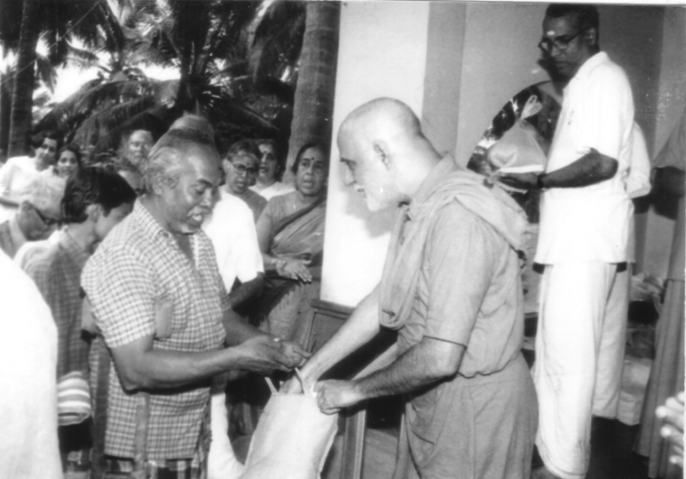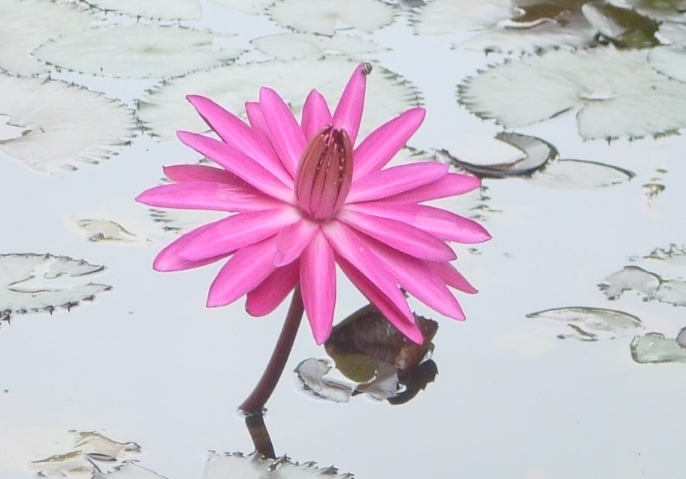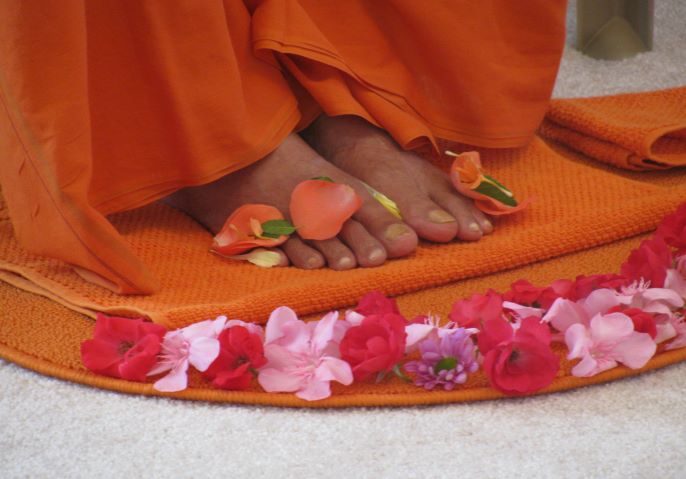Resources

Ma Gurupriya
201 – by Swamini Ma Gurupriya – Cultivating fearlessness through Introspection 01
543 Views | 1 year ago#magurupriyaji #enlightenedliving #globalsatsang
In this Satsang, Ma explains how a seeker can attain ‘Chitta Prasadah’ (placidity of the mind). To have peace and placidity, a seeker must cultivate Sattva guna and abandon desires, possessiveness, clinging, ego, and all negative qualities. If he wants liberation from the shackles of the mind and intelligence, he must abandon all evil traits and cultivate noble qualities.
Scriptures like Vivekachudamani, Sarva Vedanta Siddhanta Sara Sangrahah, and the Bhagavad Gita, give guidance to a sincere seeker about the divine qualities to be cultivated and the undesirable traits to be eliminated. Hitopadesha says that the mind does not become purified by a bath in holy rivers. For cleansing the mind, one must have self-restraint and bathe in the Atma Nadi (Soul River), which has truth as its water, characteral virtues as its firm banks, and compassion as its ripples and waves.
The Bhagavad Gita says that fearlessness, wholesome purity, adequate attunement and abidance in spiritual wisdom, charity, sensory restraint, full dedication to the Supreme, study of scriptures, austerity and straightforwardness are divine qualities that a seeker must strive to cultivate.
Normally our mind is gripped by fear of losing something dear to us and facing something we do not want to face. Mind also undergoes fear because of undue speculation and imagination about the past or future. Everything in life—enjoyment, name, fame, beauty, youth, virtue—is coupled with fear. To have fearlessness, one must abandon ego, possessiveness, and desires and cultivate vairgaya (dispassion). Ma emphasizes that fearlessness comes only when a seeker constantly thinks: “I am the Self which is unaffected, eternal, imperishable, indivisible, One.” When he understands that everything in creation is the self alone, then fear vanishes because he realizes that there is no second factor to be fearful of.
Live Global Satsang with Spiritual Masters on Tuesday/Thursday/Saturday at 8 PM IST/ 10:30 AM EDT/ 10:30 PM MYT
Website: www.bhoomananda.org/
Email: services@bhoomananda.org
Facebook: www.facebook.com/narayanashrama.tapovanam/
Pinterest: in.pinterest.com/bhoomanandafoundation/
Instagram: www.instagram.com/bhoomanandafoundation/
Tumblr: www.tumblr.com/swamibhoomanandatirtha
Linkedin: www.linkedin.com/in/bhoomananda-foundation/recent-activity/all/
Publications: vedanticwisdom.com/shop/ (Email: bookstore@vedanticwisdom.com)
Whatsapp: +91 8547960362
Subscribe to our newsletter: www.bhoomananda.org/#freeeservices-form
About us:
Narayanashrama Tapovanam, an Ashram located in Thrissur, Kerala, embodies the unique tradition of Guru-shishya Parampara, disseminating Brahmavidya (Science of Self-knowledge) through regular classes, satsangs, and above all, through learning in the association of a realized spiritual master.
most popular

Swami Bhoomananda Tirtha
സുഖമരണം സാധിയ്ക്കുന്നതെങ്ങനെ? | Swami Bhoomananda Tirtha
- 50382 Views
- 2 months ago

Swami Bhoomananda Tirtha
148 – അയോധ്യയിലെ രാമക്ഷേത്രത്തിൽ നടന്ന പ്രാണപ്രതിഷ്ഠ | By Swami Bhoomananda Tirtha
- 45997 Views
- 1 year ago


Swami Bhoomananda Tirtha
01 – Vishnusahasranama – Swami Bhoomananda Tirtha – Genesis and Significance of Vishnusahasranama
- 42648 Views
- 11 years ago
from the ashram diary
Audios
അനാരോഗ്യത്തെ എങ്ങനെ നേരിടണം? | How to deal with ill health?
Swami Bhoomananda Tirtha
ഭക്തി ഒരു അമൂല്യനിധി | Devotion is a Treasure
Swami Bhoomananda Tirtha
അദ്ധ്യാത്മജീവിതത്തിൻ്റെ പ്രായോഗികത | Practical Significance of Adhyatmic life
Swami Bhoomananda Tirtha
Examples of Gunas from Srimad Bhagavatam
Swami Bhoomananda Tirtha
The Path of Enquiry in Sadhana
Swami Bhoomananda Tirtha
Be Faithful to Deeksha Sadhana
Swami Bhoomananda Tirtha



 Add to Favorites
Add to Favorites Add to Playlist
Add to Playlist



















